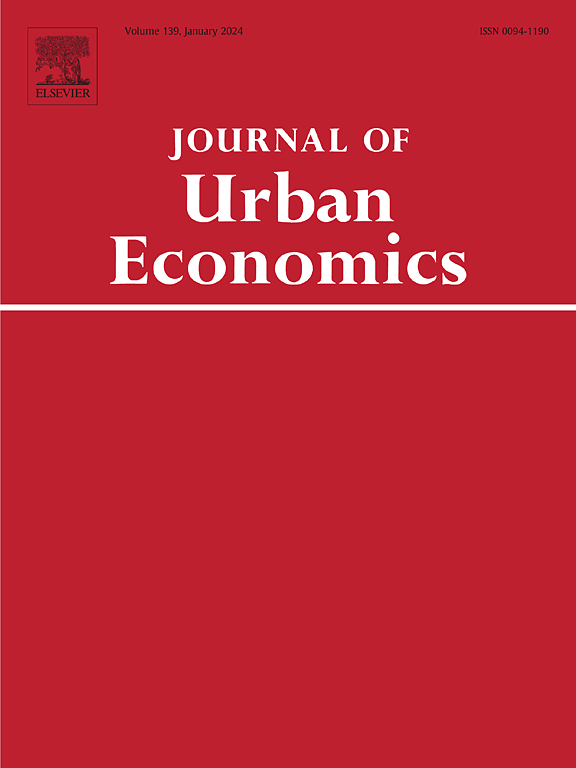房地产繁荣会伤害企业吗?投资替代的证据
IF 4.8
1区 经济学
Q1 ECONOMICS
引用次数: 0
摘要
在地域分割的信贷市场中,地方房地产的繁荣会恶化小型制造企业的融资条件,削弱其增长和竞争力。基于中国各城市住宅用地行政供应的外生变化,我们发现土地供应限制导致的房地产价格上涨会减少银行对制造业企业的信贷,提高其借贷成本,降低其投资率,影响其产出和生产率的增长,并增加其退出率。这种有害影响在小企业和位于更依赖银行地区的企业中更为明显。本文章由计算机程序翻译,如有差异,请以英文原文为准。
Can real estate booms hurt firms? Evidence on investment substitution
In geographically segmented credit markets, local real estate booms can deteriorate the funding conditions for small manufacturing firms and undermine their growth and competitiveness. Based on exogenous variations in the administrative land supply for residential housing across Chinese cities, we show that real estate price hikes caused by a restrictive land supply reduce bank credit to manufacturing firms, raise their borrowing costs, diminish their investment rate, compromise their output and productivity growth, and increase their exit rates. Such harmful effects are more pronounced among small firms and those located in more bank-dependent regions.
求助全文
通过发布文献求助,成功后即可免费获取论文全文。
去求助
来源期刊

Journal of Urban Economics
Multiple-
CiteScore
10.60
自引率
4.80%
发文量
64
期刊介绍:
The Journal of Urban Economics provides a focal point for the publication of research papers in the rapidly expanding field of urban economics. It publishes papers of great scholarly merit on a wide range of topics and employing a wide range of approaches to urban economics. The Journal welcomes papers that are theoretical or empirical, positive or normative. Although the Journal is not intended to be multidisciplinary, papers by noneconomists are welcome if they are of interest to economists. Brief Notes are also published if they lie within the purview of the Journal and if they contain new information, comment on published work, or new theoretical suggestions.
 求助内容:
求助内容: 应助结果提醒方式:
应助结果提醒方式:


